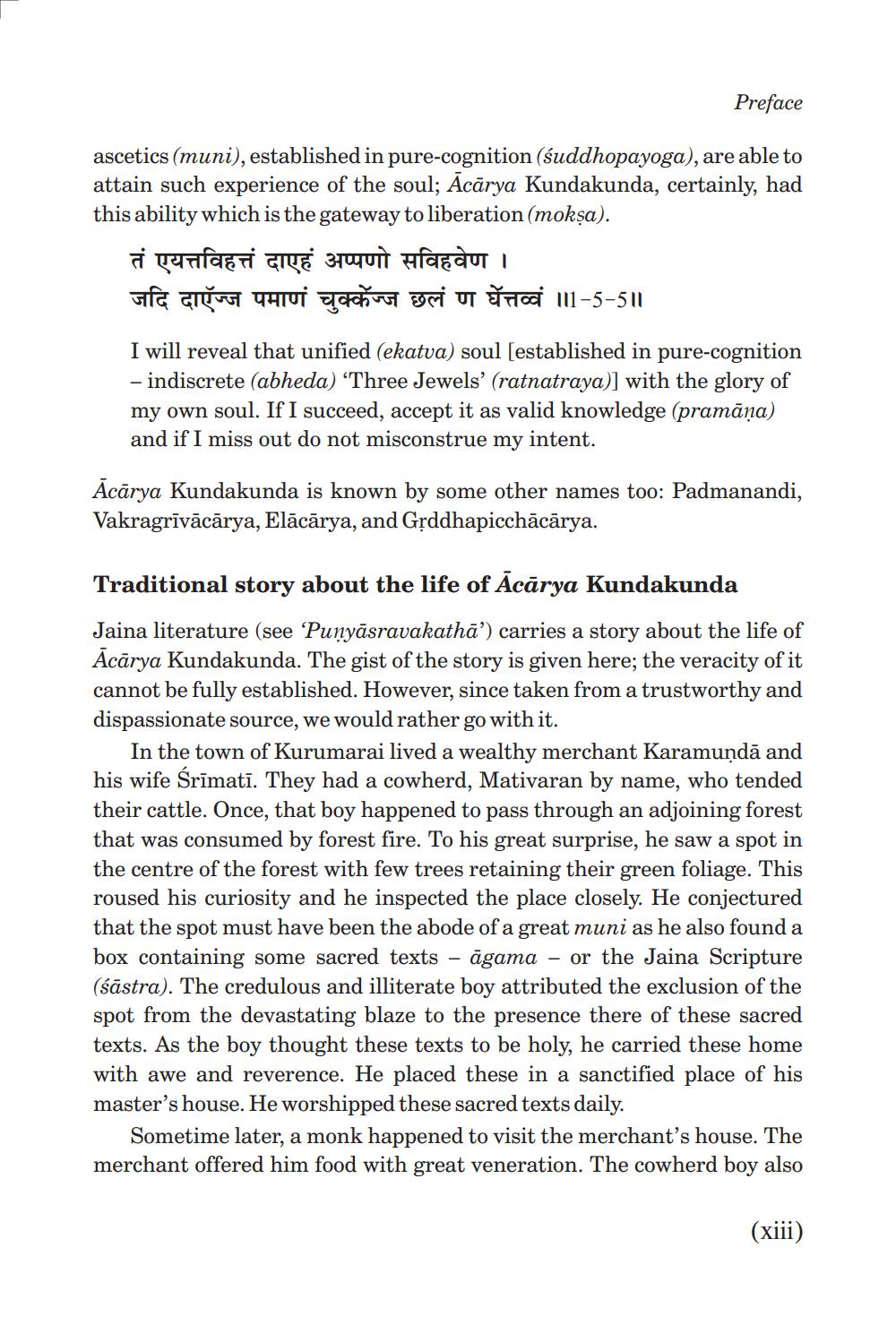________________
Preface
ascetics (muni), established in pure-cognition (śuddhopayoga), are able to attain such experience of the soul; Acārya Kundakunda, certainly, had this ability which is the gateway to liberation (mokṣa).
तं एयत्तविहत्तं दाएहं अप्पणो सविहवेण । Gifą git Yhlu alcoh wet ori u Strooi 111-5-511
I will reveal that unified (ekatua) soul [established in pure-cognition - indiscrete (abheda) 'Three Jewels' (ratnatraya)] with the glory of my own soul. If I succeed, accept it as valid knowledge (pramāņa) and if I miss out do not misconstrue my intent.
Acārya Kundakunda is known by some other names too: Padmanandi, Vakragrīvācārya, Elācārya, and Grddhapicchācārya.
Traditional story about the life of Acārya Kundakunda Jaina literature (see 'Punyāsravakathā') carries a story about the life of Acārya Kundakunda. The gist of the story is given here; the veracity of it cannot be fully established. However, since taken from a trustworthy and dispassionate source, we would rather go with it.
In the town of Kurumarai lived a wealthy merchant Karamundā and his wife Śrīmatī. They had a cowherd, Mativaran by name, who tended their cattle. Once, that boy happened to pass through an adjoining forest that was consumed by forest fire. To his great surprise, he saw a spot in the centre of the forest with few trees retaining their green foliage. This roused his curiosity and he inspected the place closely. He conjectured that the spot must have been the abode of a great muni as he also found a box containing some sacred texts - agama – or the Jaina Scripture (śāstra). The credulous and illiterate boy attributed the exclusion of the spot from the devastating blaze to the presence there of these sacred texts. As the boy thought these texts to be holy, he carried these home with awe and reverence. He placed these in a sanctified place of his master's house. He worshipped these sacred texts daily.
Sometime later, a monk happened to visit the merchant's house. The merchant offered him food with great veneration. The cowherd boy also
(xiii)




